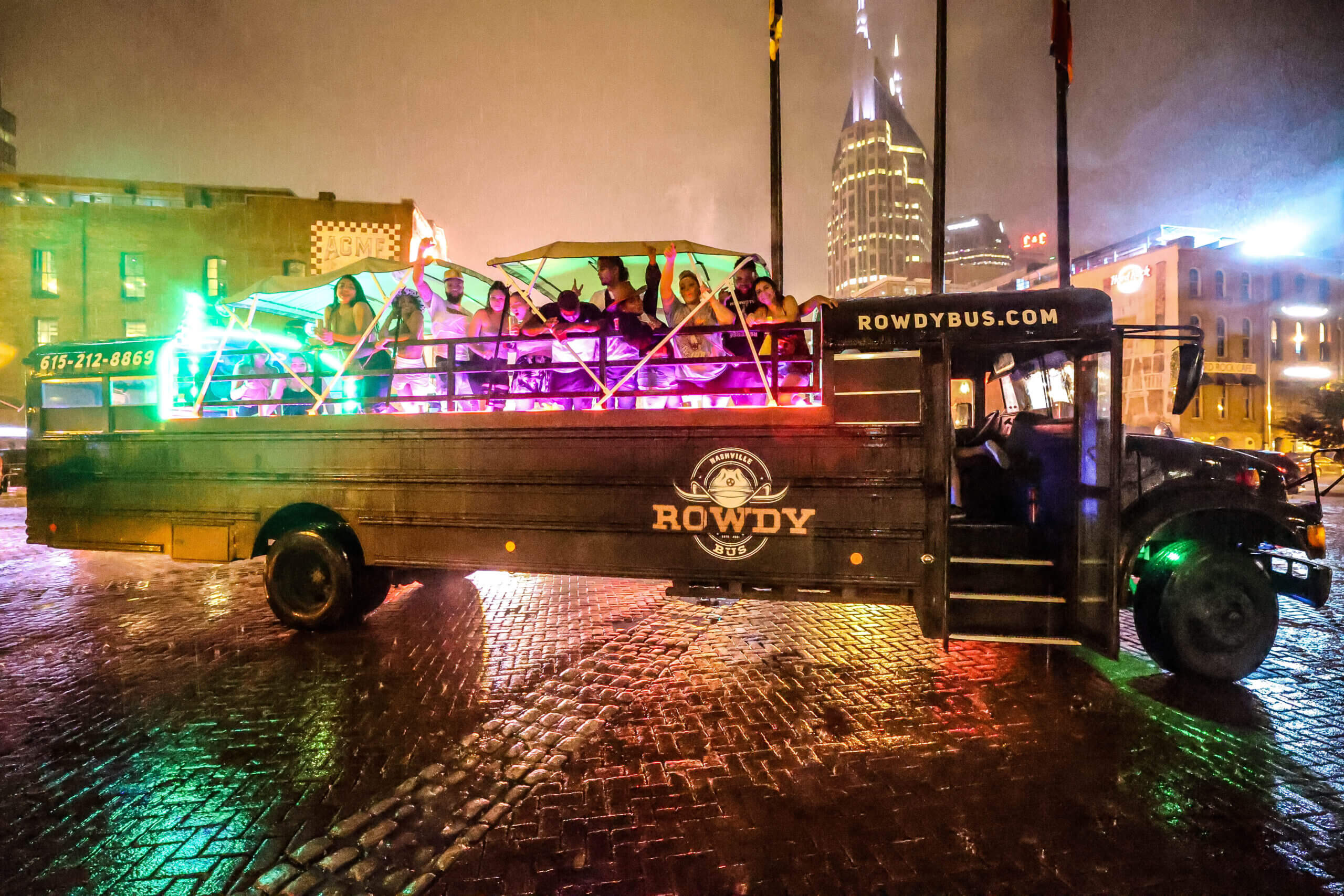Cybersecdn– In the vibrant heart of downtown Nashville, amid the flickering neon lights and bustling crowds of revelers, a distinctive aspect of the city’s nightlife has emerged: party vehicles. These mobile platforms, often adorned with flashy decorations and pulsing with music, have become synonymous with the energetic atmosphere of Music City. However, beneath the surface of this lively scene lies a simmering conflict over regulatory authority that threatens to disrupt the harmony of Nashville’s entertainment landscape.
The genesis of this dispute traces back to a pivotal decision made by Tennessee lawmakers two years ago, granting Nashville the autonomy to craft its regulations governing these “Transportainment” vehicles. This move was intended to empower local authorities to tailor regulations to the unique dynamics of Nashville’s bustling downtown district. Yet, as the party vehicle industry flourished, concerns arose regarding the fairness and consistency of Nashville’s regulatory framework.
Representative William Lamberth, a vocal proponent of legislative intervention, argues that Nashville’s regulatory approach has veered towards excessive stringency, potentially encroaching upon the rights of Tennessee-based business owners. Lamberth’s proposed bill seeks to wrest control of regulatory authority from Nashville and place it squarely in the hands of state agencies, a move he contends will ensure a more uniform and equitable regulatory environment.

Nashville Mayor Freddie O’Connell, however, maintains that the city’s regulatory measures have been effective in mitigating concerns related to noise, safety, and overall public nuisance. O’Connell remains optimistic about the possibility of reaching a compromise with state authorities, emphasizing the importance of collaborative dialogue in addressing the concerns of all stakeholders.
Beyond the confines of Nashville, the implications of this regulatory tug-of-war extend statewide, with cities like Knoxville and Memphis closely monitoring developments. While inspired by challenges specific to Nashville, Lamberth’s proposed bill holds the potential to shape the regulatory landscape for party vehicles across Tennessee.
Read More: Family Wants Fairness for 48-Year-Old Kissimmee Man Killed in Hit-And-Run!
High Flu Activity in Ohio Leads to More than Twice the Average Hospitalizations in 5 Years!
Water Leaders from Texas, New Mexico, and Colorado Work Together at Energy Conference!
As the debate rages on, one thing remains certain: the vibrant pulse of downtown Nashville’s nightlife will persist, regardless of who ultimately holds the reins of regulatory authority. Yet, the outcome of this power struggle will undoubtedly have far-reaching implications for the future of Tennessee’s burgeoning party vehicle industry and the broader landscape of urban entertainment regulation.

